- Free schools for IDP children in Arakan State struggle to stay open amid funding shortfall
- Female-headed IDP households in Ponnagyun Twsp struggle as commodity prices surge
- Min Aung Hlaing likely to take State Counsellor role in post-election government formation: Analysts
- Hindus express hope for educational reform under AA administration
- Arakanese zat pwe performers struggle to survive as conflict halts traditional shows
Chinese projects in Arakan State face local opposition and escalating conflict
Kyaukphyu in Arakan State is home to significant Chinese investments, including the Shwe gas project and the Kyaukphyu port. However, local people enjoy little benefit from those investments.
15 Sep 2024
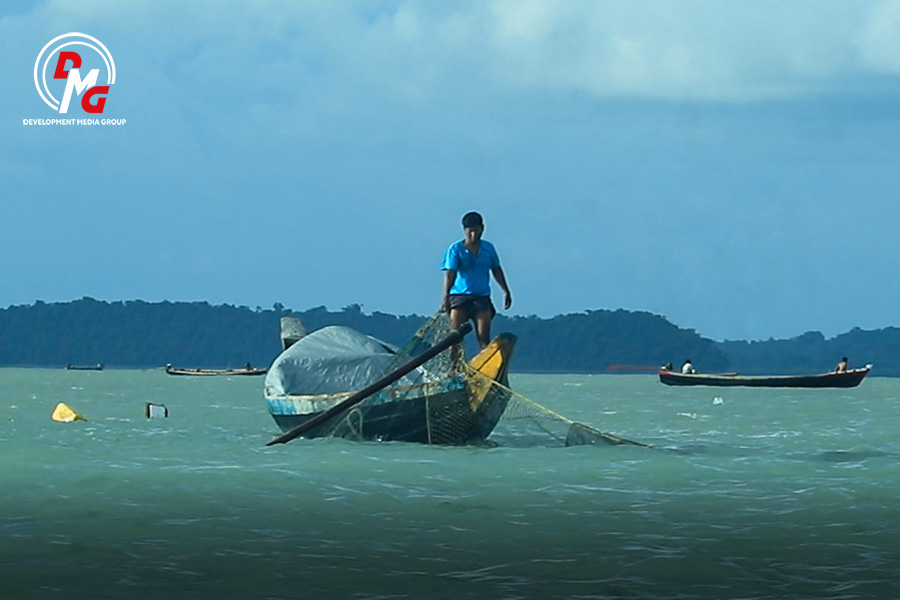
Written by DMG
Residents in Arakan State are nearly starving as food prices have increased ten-fold due to the junta's 'four cuts' strategy, designed to cut off sources of food, funds, information and recruitment.
To make matters worse, the regime has disrupted the primary source of livelihood on Maday Island: fishing.
The junta has banned travel around Maday Island from July 15 until September 30, 2024. Small ships, cargo vessels, fishing boats, other vessels are prohibited to anchor, fish and cast nets in the waters during the ban.
One islander U Kyaw (pseudonym) said: "People on the island rely on fishing. We are going to starve if we can't fish."
Chinese-backed projects pose challenges to fishermen
Kyaukphyu in Arakan State is home to significant Chinese investments, including the Shwe gas project and the Kyaukphyu port.
However, local people enjoy little benefit from those investments.
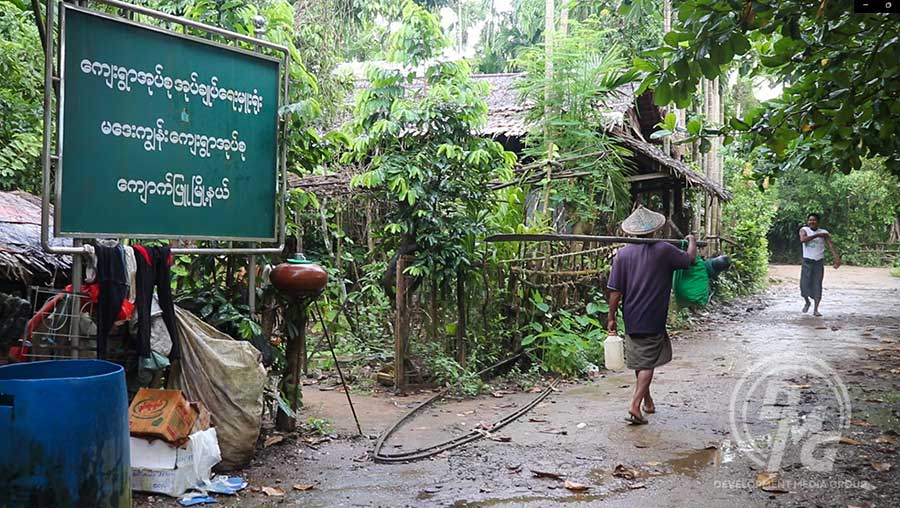
Maday Island, the center of the Shwe project, is home to over 760 households with a population of 3,600 people, most of whom fish to earn a living.
Thanzit River used to provide ample fishing grounds for locals. Now, fishing grounds have shrunk significantly as companies dump waste into the river.
"Things have become extremely difficult for Maday islanders due to Chinese projects. Locals are considering abandoning the island now," said U Kyaw.
Residents report that the catch of fish and prawns has steadily declined from 20-30 visses to less than three visses now.
The decline in incomes is taking a heavy toll on lives on the island.
"People can't send their children to schools in the town [for high school]. Many can't afford to send their children to middle school in the village, let alone schools in the town. We can't afford to pay for books, school uniforms and other costs," said U Kyaw.
Fishing has traditionally been the only source of livelihoods for locals on Maday Island, making it difficult to switch into other local jobs.
Kyaukphyu Special Economic Zone (SEZ) poses challenges to local fishermen
Kyaukphyu SEZ and deep-sea port is a strategic port aimed to strengthen China's position in the Indian Ocean. The port will help China to bypass the Strait of Malacca off the Malay Peninsula. It may also spur the development of land-locked Yunnan Province while supplying crude oil and gas to southwestern provinces in China.
Kyaukphyu SEZ consists of three components-a deep-sea port, an industrial park and an integrated residential area. Earmarked areas overlap with waters and land used for fishing and farming.
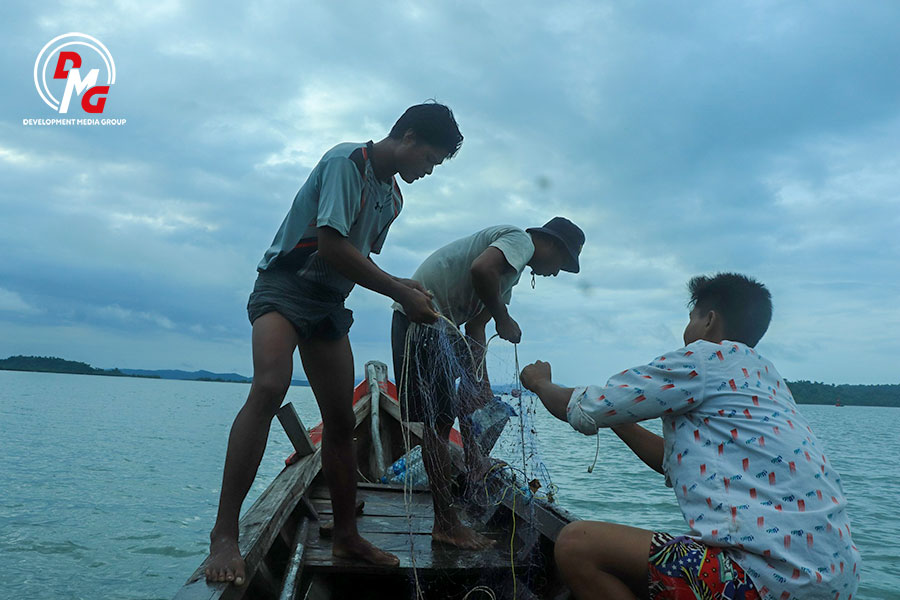
"Locals are already in deep waters. Their lives will be ruined if the deep-sea port project is implemented. Fishing is the only source of livelihood for us, and our lives will be ruined if we can't do that," said Maday islander Ko Yan Naing Win (pseudonym).
According to a February 2017 report from the International Commission of Jurists (ICJ), around 200,000 people in Kyaukphyu SEZ's project area may be displaced. Further, the Institute for Strategy and Policy-Myanmar suggests that the proposed SEZ project sits on 20 small-scale fishing villages, disturbing fishing grounds for over 5,000 households.
An example from the past
The Myanmar regime's second in command, Vice Senior General Soe Win, said in June 2021 that the Kyaukphyu project would create employment opportunities for 30,000 to 100,000 people.
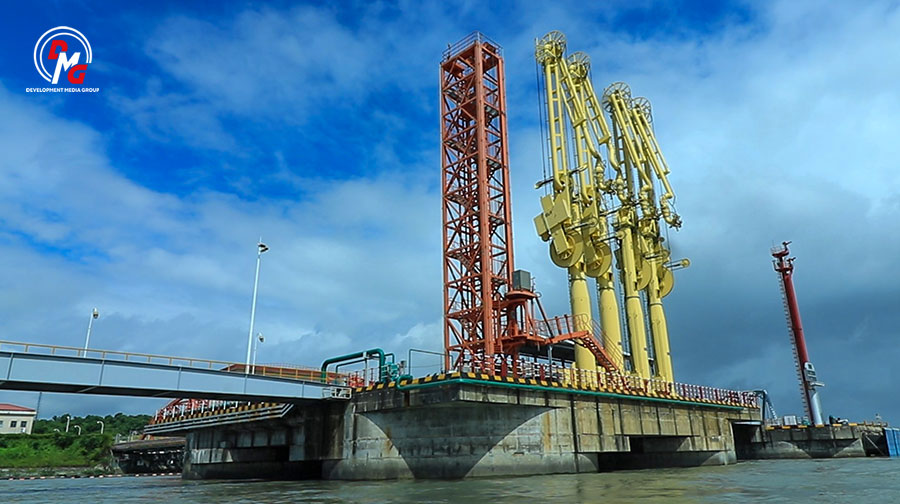
According to China National Petroleum Corporation (CNPC) and officials from the Myanmar regime, some management positions will be assigned to residents shortly after implementation. After 10 years of operation, about 90 percent of management positions are expected to be assigned to residents.
However, while incentives have been promised, residents no longer have confidence in Chinese-funded projects.
"The Chinese company CNPC said that when the project was implemented, it would create job opportunities for residents of Maday Island and improve social life. In fact, it was not easy for even a local to get a job when the project was completed," said Ko Yan Naing Win (pseudonym), a local resident of Maday Island.
Employment opportunities were offered when China's Shwe gas field project began in 2009.
Unfortunately, local people did not receive jobs and are still suffering the negative impacts from the project, including losses of farmland, damage to the natural environment, and depleted fishing resources. Furthermore, areas with Chinese-funded projects still lack transportation infrastructure and mobile phone and internet access.
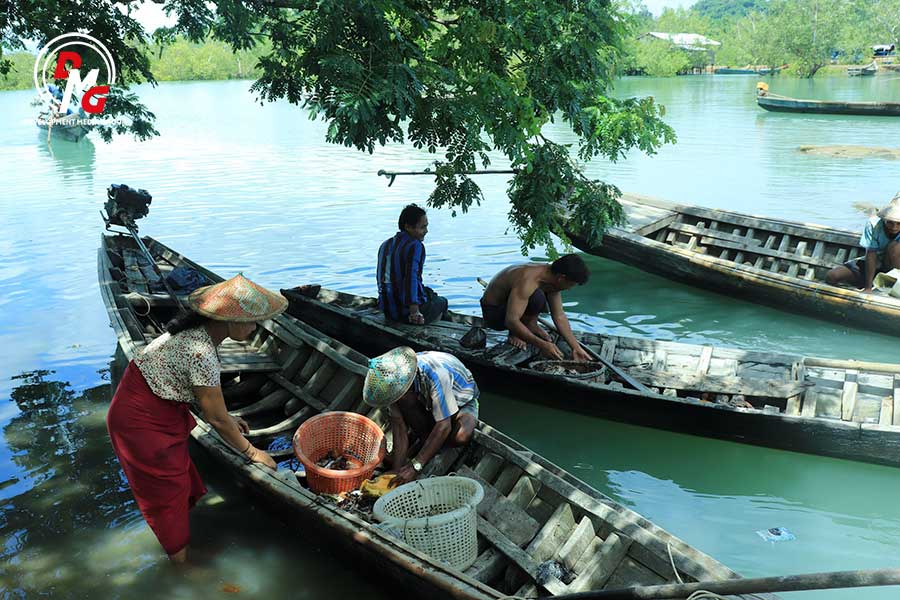
"Residents of Maday Island honestly don't even want to hear the sound of China. China is making a lot of money doing projects on Maday Island. Residents of Maday Island cannot replace the nipa palm leaves on their roofs with corrugated metal roofing sheets during the rainy season," said U Kyaw (fictitious name), a local man of Maday Island.
Locals say that Chinese projects are only concerned with national interests, rather than the interests of the local community. China and the Myanmar regime have agreed to donate $5 million in the first five years of the Kyaukphyu SEZ project, and $500,000 each in the remaining years to social causes, a small proportion of the estimated $6.5 billion in taxes the Kyaukphyu project is expected to bring in over its 50-year lifetime.
"The local people objected to the project due to the problems of these projects not providing job opportunities to local people and not employing local workers," said Ko Aung Aung, an activist in Kyaukphyu Township.
Conflict disrupting implementation of the Kyaukphyu SEZ
On December 26, 2023, China's CITIC and the Myanmar regime signed a concession agreement for Kyaukphyu deep-sea port. The port has 10 berths and has been touted as having the capacity to handle 7 million 20-ft containers annually. After the military coup, the regime moved to implement the project as soon as possible. The regime began preliminary steps to develop the port in January 2024.
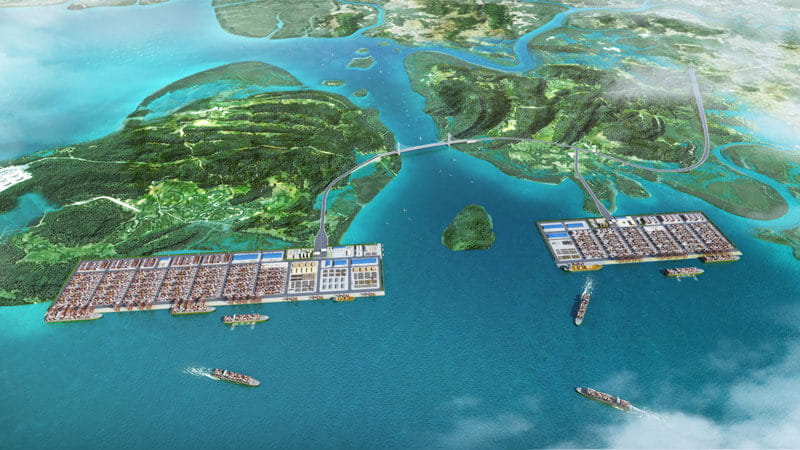
However, China has hesitated to fully implement the Kyaukphyu SEZ project due to rising military tensions in Arakan State, analysts say.
"China has no mandatory implementation of the Kyaukphyu SEZ during this period. The regime wants to protect Kyaukphyu with Chinese projects, said U Tun Kyi, Director of the Center for Peace and Development, a civil society organisation monitoring the Kyaukphyu SEZ project.
The scope of conflict in Myanmar is expanding with renewed hostilities in Arakan State from "Operation 1027". Fighting is taking place in 16 out of 17 townships in Arakan state. Since launching its offensive in November 2023, the Arakan Army (AA) has seized nine townships in Arakan State as well as Paletwa Township in neighbouring Chin State.
Kyaukphyu Township, which is home to several Chinese-funded projects, is currently under threat from the AA. The AA seized control of neighboring Ramree Township on March 11, 2024.
Due to the fighting, implementation of the Kyaukphyu SEZ is uncertain.
"Kyaukphyu SEZ will be implemented. I believe that China will continue with those who can protect its interests, no matter what government it is with," said an observer of the Kyaukphyu SEZ.
With the escalation of armed conflict in Myanmar, China is concerned its projects will be affected. During a visit to Myanmar in August 2024, Chinese Foreign Minister Wang Yi urged the regime to protect the safety of Chinese employees and projects in Myanmar.
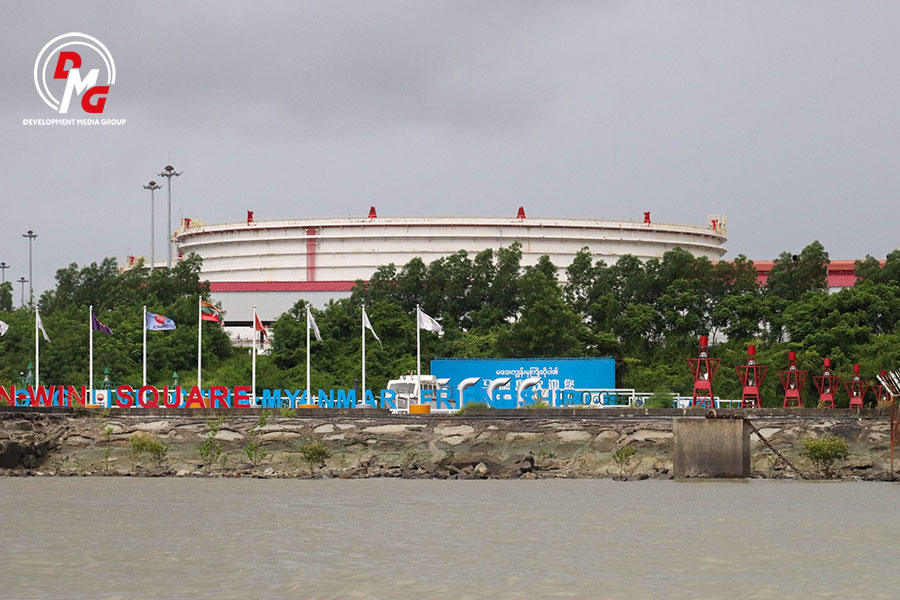
An ISP Myanmar report found that 10 out of 19 Chinese investment projects in central Myanmar are now fully controlled by ethnic armed organisations and revolutionary forces as of August 18. In Arakan State, 9 out of 11 Chinese-backed projects are partially controlled by the AA, according to the latest reporting from ISP Myanmar.
The AA partially controls the Kyaukphyu deep-sea port and special economic zone, gas-fired power plant in Kyaukphyu, the oil and natural gas pipelines, Kyaukphyu-Ann railway road, Mandalay-Kyaukphyu railway road, Mandalay-Kyaukphyu motor road, Kyaukphyu-Nay Pyi Taw motor road, and a wind power project in Thandwe Township.
According to the ISP Myanmar report, the value of Chinese projects controlled by the AA is over US$2.3 billion, including projects that have not yet been implemented and whose value is unknown. The AA has announced it will welcome any kind of foreign investment that contributes to regional development and is beneficial to Arakan State.
"The AA has said that partially controlled projects will be encouraged without any hindrance and will be protected under the foreign investment policy. If all the projects fall under the AA, there can be discussions about benefits and benefits between the officials of both parties," said U Pe Than, a political analyst and veteran Arakanese politician.
The AA, which aims to control all of Arakan State, is currently marching step by step towards this goal.
(Note - Names of some locals in the article have been changed due to security reasons.)







.jpg)












